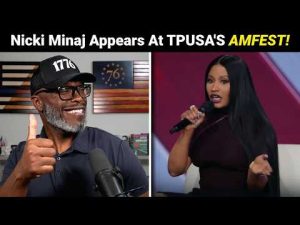**The Brave New World of College Campuses: Brainwashing or Education?**
In a whirlwind of debate, college campuses have become a playground for the clash of ideologies. A recent lively discussion on a conservative news channel took a deep dive into a pressing concern: the notion of brainwashing within higher education. The host passionately argued that young minds are being molded in a way that echoes historical oppressive regimes. It may sound dramatic, but the sincere worry about the erosion of free thought in educational institutions is a sentiment echoed by many conservatives across the country.
The conversation spiraled into comparisons between the current state of American colleges and the iron fist of the Soviet Union. The host asserted that the prevalent ideas taught in these institutions often omit conservative viewpoints, leading to a homogenized ideology that stifles dissent. This creates an environment where students might feel pressured to conform, much like many individuals experienced in days gone by under oppressive political regimes. The irony was not lost as the discussion unfolded; after all, aren’t colleges supposed to be bastions of free thought and innovation?
Building upon this notion of “brainwashing,” the issue of curriculum arose. The host pointed out how contemporary education often embellishes or even entirely dismisses the contributions of historical figures like Thomas Jefferson. Instead of exploring their complexities, students are sometimes presented with a skewed narrative that fosters shame rather than pride in American history. Emphasizing the brilliance of foundational figures became a rallying cry, as the host lamented that modern curricula might neglect the heroic aspects of those who shaped the nation, focusing instead on their flaws.
An interesting scenario emerged when discussing the grading of conservative students. The host posed a telling question about whether wearing a Trump hat on campus could result in unfair grading or ostracization. This raised eyebrows; for many, the concept of penalizing students for their political beliefs is a red flag waving in front of a bull. It implies a dangerous precedent: if students can’t express dissenting opinions without fear of repercussions, how different is this from a repressive regime? The audience was left to ponder whether America’s class of would-be leaders is being trained to think freely or merely to toe the ideological line.
With plenty of humor, the host couldn’t resist noting how the emphasis on divisive topics—like systemic racism and climate change—often dominates the conversations among students. While these are undoubtedly serious issues, he argued that they shouldn’t overshadow the foundational principles of the country or the importance of understanding the full scope of its history. According to the host, a well-rounded education should promote critical thinking, where students learn to appreciate both the triumphs and failures of their nation rather than blindly accept one narrative.
In closing, what lies ahead for America’s colleges? Are they breeding grounds for the leaders of tomorrow or simply echo chambers for a singular viewpoint? The lively discussion reflects a broader worry among conservatives that education, which should empower and enlighten, may instead be fostering an intellectually stifling environment. As the debate rages on, one thing remains clear: the quest for true educational freedom might just be the next great challenge of our time. After all, nothing says “well-rounded education” quite like a healthy serving of free thought alongside the complex history of the nation. Let’s hope students are encouraged to dig deeper, think critically, and engage in conversations that challenge their beliefs rather than reinforce them.







